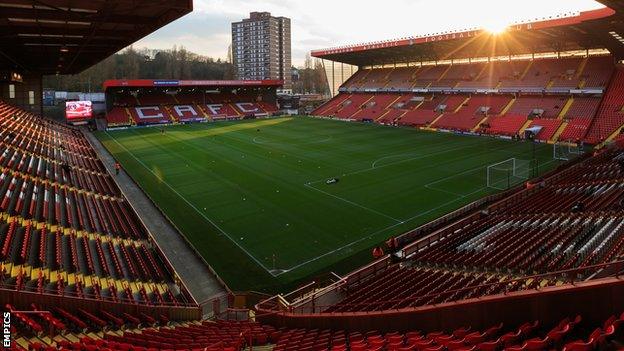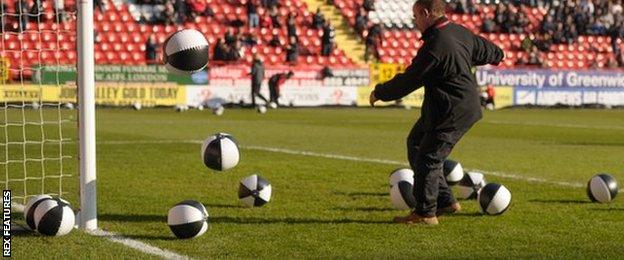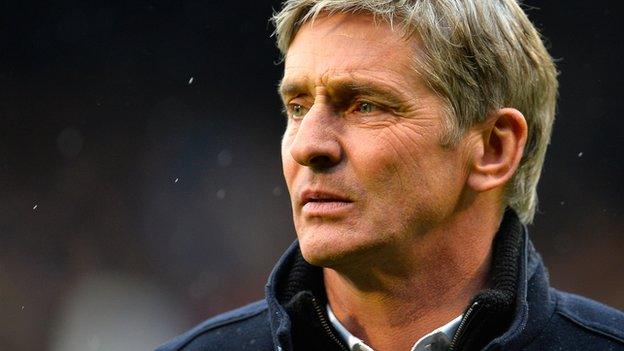Metropolitan Police issue warning after 'criminal acts' during Charlton matches
- Published

Fans have protested at a number of Charlton matches this season
The Metropolitan Police Service have warned they will pursue those responsible for "criminal acts" following a number of incidents involving Charlton fans.
It comes after recent protests against the struggling Championship club's owners and incidents during a League Cup tie at Crystal Palace in September.
A supporter allegedly attempted to punch Palace's eagle mascot.
Kayla, an American bald eagle, was reportedly targeted amid crowd trouble.
A joint statement, external issued by Charlton and the MPS read: "The Metropolitan Police Service and Charlton Athletic Football Club recognise the right of the fans to protest peacefully and both the MPS and the club continue to work together to ensure that protests take place in a way that is safe and lawful.
"Both the MPS and the club are in agreement that unlawful behaviour in the name of protest is not acceptable.
"A number of criminal acts in recent games have taken place and the club are working with the MPS to identify offenders and, where appropriate, bring them before a court for prosecution and/or seeking bans.
"When offences are committed, the MPS may not necessarily arrest at the time but can look to gather evidence and arrest or summons at a later date where appropriate."

Groundstaff had to clear beach balls thrown onto the pitch at the start of the recent game against Middlesbrough
Charlton are second from bottom of the Championship and supporters have made their discontent clear, particularly before, during and after the 2-0 win at home to Middlesbrough on 13 March.
A coffin was brought to the ground by fans unhappy with the way Roland Duchatelet and chief executive Katrien Meire are running the club.
The start of the game was then disrupted when beach balls were thrown onto the pitch, and whistles blown in the crowd later caused confusion for players.
There was also a pitch invasion by a small number of fans after Charlton's first goal, while others left the ground in the 74th minute to mark the number of goals the team had conceded this season.
There was then a demonstration outside the stadium after the match.
- Published14 March 2016
